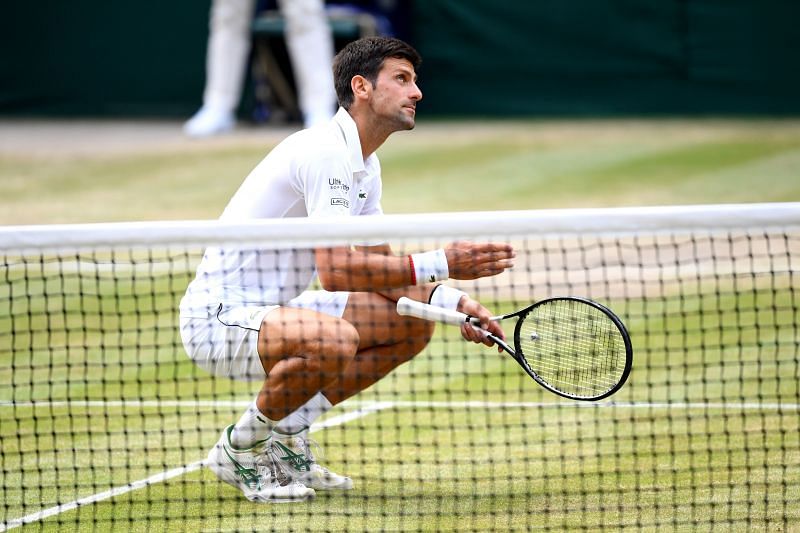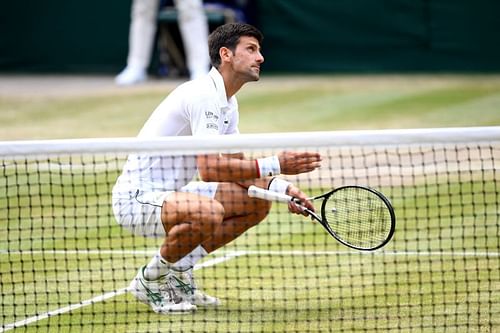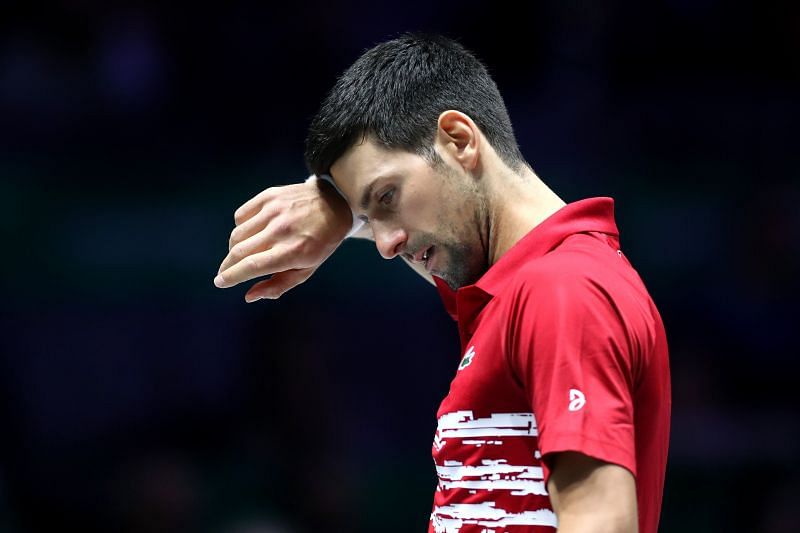
Novak Djokovic reveals secret to saving match points

Novak Djokovic, who is regarded as one of tennis' greatest players of all time, will also go down as one of its most clutch competitors. And in an insightful conversation with Graham Bensinger, the No. 1 player in the ATP rankings explained how he has trained his mind to remain steady during the big moments.
The Serb, who has 17 Grand Slam titles to his name, has made it a habit of playing his best when the stakes are the highest. Novak Djokovic has consistently been able to dig deep in times of adversity and strike back when his opponent least expects it, eventually turning the match on its head.
So how does he do it?
"Consciously breathing first," answered Novak Djokovic. "That's probably the simplest thing that you can do, and the most effective. The experience of being in these situations so many times before, in my career, helps me every next time that I have to face the adversity and the distractions, including my thoughts, 'what ifs' and fears."
"Everyone goes through that thought process," Djokovic added. "I don't think it is particularly bad. I used to think it is bad, which is why I was trying to shut it down."
"The major transformation in a positive way started for me when I was starting to acknowledge it and accept it as a part of me. My fear is there, my ego is there. But then, how will I address it in a way that will help me overcome it and transform it into a positive fuel," he went on.
Novak Djokovic has definitely found a way to turn his fear into his fuel. The Serb has lost just 34 of the 113 ATP finals he has contested, winning 79 titles in a glittering career. However, one of the most impressive features of his legacy is his ability to fight back from seemingly hopeless situations.
The 32-year-old has bounced back from match-point down 15 times in his career, including at Wimbledon last year.
How Novak Djokovic learned to gain control over his mind

Djokovic was down and out against Roger Federer in the final at SW19, facing two match points deep in the fifth set. However, he turned things around dramatically to win the match 7–6, 1–6, 7–6, 4–6, 13–12.
At the Australian Open this year, he made a similarly stunning comeback against Dominic Thiem from two sets to one down. The Serb eventually claimed his eighth title in Melbourne with a 6–4, 4–6, 2–6, 6–3, 6–4 scoreline.
"I practice a lot of mindfulness," Djokovic said. "Meditation, journaling, talking with my team, my parents my wife. Trying to address certain emotional issues or traumas with my life coaches, spiritual guides. When I'm facing a match point or break point, they do tend to surface but I manage to gain control over them much quicker."
"I manage to impose my positive affirmations or if I can't do it, I accept that it's going to happen in that moment," Djokovic added. "I focus on my breathing and the moment. Then [I focus] on what needs to be done in the next moment, which is playing the right shot, positioning myself well on the court and execution. That's much easier said than done and anyone who plays the sport at the highest level to understand that."
"It takes years of devoted practice, mentally. Not just physically. And you have to do it – you can't expect others to really fix your emotional or mental issues. They can encourage, empower and understand you. They can give you tools. But you have to use those tools and do it the right way," he finished.
Novak Djokovic turned his life around - physically, mentally and psychologically - for the sake of his career. It's no wonder he has 17 Grand Slam titles to his name, and a real shot at the GOAT title.